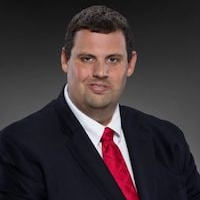Taylorsville Misdemeanor Lawyer, Georgia
Sponsored Law Firm
-
 x
x

Click For More Info:
-
The Ford Law Firm
Assault, DUI, Firearms, Murder, more... Expect Results, Not Excuses
I understand how the system works. Potentially, even getting the case dismissed before it is ever filed against you…it is important to act quickly. Call now at the number below.
800-298-1630  Thomas Ford Alpharetta, GA
Thomas Ford Alpharetta, GAAttorney At Law - GA, 1996
University of Florida, J.D. - 1995
 State & Federal Law
State & Federal LawCriminal cases are filed in both State and Federal Courts. Click for Info.
Quinn Johnson
✓ VERIFIEDQuinn Johnson is the principle of The QUINN JOHNSON LAW FIRM, P.C. Our firm has earned a reputation of getting results on behalf of our clients thr... (more)
Cory Yager
Cory Yager is a lawyer in Atlanta who focuses on Juvenile Crimes cases. He has tried cases involving expungement, traffic violations, solicitation, DU... (more)
M. Byron Morgan
✓ VERIFIEDByron has been practicing criminal defense and family law for over 28 years. Look at his website at www.byronthelawyer.com. Byron constantly has cli... (more)


 Thomas Ford Alpharetta, GA
Thomas Ford Alpharetta, GA State & Federal Law
State & Federal Law




